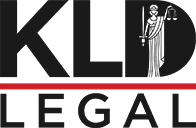Due Diligence
A solicitor’s role in carrying out due diligence for land transactions means investigating a property which you may be about to sell or buy, and reporting to you on any adverse issues with the property.
The objective of due diligence is to try to prevent any problems with the property from impacting on you, and to help you make the best decision that you can.
Seller due diligence
A Seller of land needs to ensure that:
- Any mortgage or other encumbrance, such as a caveat, on the certificate of title is removed or discharged prior to settlement.
- Any necessary disclosures are given to the Buyer prior to the parties entering into the sale of land contract – eg. If the land is subject to a contaminated site classification, that must be disclosed to the Buyer before the parties sign the sale of land contract.
- They have a valid current and registered Building Energy Efficiency Certificate (BEEC) under the Building Energy Efficiency Disclosure Act 2010 (Cth), if they are selling an office building in which the net lettable area of the office space is 2,000 square metres or more and the Seller is a corporation. If the Seller is a natural person the Buyer may also require the Seller to provide the Buyer with a valid BEEC prior to settlement.
- If selling a strata or survey-strata title property, the required disclosure under section 69A of the Strata Titles Act 1985 (WA) is given to the Buyer.
Buyer due diligence
A Buyer of land needs to establish that:
- The subject of the sale contract (or other contract) is the land described in that contract.
- Whether there are any issues which may adversely affect them given the encumbrances that are registered on the certificate of title.
- Any easement, restrictive covenant, caveat, memorial or other encumbrance registered on the title should be searched and considered for its impact on the Buyer.
- If any chattels or equipment are to be sold with the land a search of the Personal Property Security Register should be undertaken to ensure that the Seller has proper title to these items or to establish that any registered security interest in these items are released before settlement.
- A local or public authority has not lodged a notification on the title under section 70 of the Transfer of Land Act 1893 (WA) notifying a prospective Buyer of factors that may affect the use or enjoyment of the land.
- The Western Australian Planning Commission has not lodged a notification against the certificate of title for land notifying a prospective Buyer of a hazard or other factor affecting the land.
Further issues
Boundary Survey – it is highly desirable to establish whether there are any encroachments from buildings and or structures on the land over the boundary to the land or any encroachment by an adjoining building or structure. Encroachments of this kind give rise to issues of adverse possession.
There have also been cases in which the Buyer believed on viewing a property that, due to where the fences were erected, the boundary of the property extended well beyond the actual boundary of the land.
Vacant Land – Buyer’s should consider whether the land is contaminated; view the contaminated sites database at the Department of Environment Regulation, and consider whether to engage an environmental consultant to analyse and report to them on the land.
Commercial Property – Offices – Shopping Centres
Buyers of Commercial Property should obtain a copy of the original and subsequent development approvals because the conditions imposed under those approvals are binding on subsequent proprietors of the land.
Any substantial leases which apply to the property should be examined and registered prior to settlement. See the tip sheet ‘For Commercial Landlords’ on the value of having all lease documents reviewed by a diligent solicitor who is experienced in leasing law before you buy a Commercial Property or Retail Shop.
Relevant legislation
- Personal Property Securities Act 2009 (Cth)
- Building Energy Efficiency Disclosure Act 2010 (Cth)
- Contaminated Sites Act 2003 (WA)
- Planning and Development Act 2005 (WA)
Frequently Asked Questions
Due diligence is the process of investigating a business or asset, such as property, before entering into a legally binding offer to purchase that asset or business. Usually, this is conducted by a lawyer, who can help identify any risks involved.
Due diligence occurs before a major transaction is legally binding and enforceable. The potential buyer will usually include a condition in the contract to purchase that gives them the right to undertake due diligence.
Due diligence is able to reduce the risks associated with making a bad investment by identifying potential issues early, and assisting in negotiating a better deal. Failing to complete due diligence could result in unforeseen financial losses, business challenges and legal issues.
Some red flags include inconsistent financial records, in which the income from a property under the lease does not match the financial records, lawsuits, boundary issues and rights of third parties that interfere with the owner’s use of the land.
The cost of due diligence depends on many factors, including the size and complexity of the transaction and the amount of time that the lawyer will need to spend reviewing documents, etc., to provide you with the advice required.

